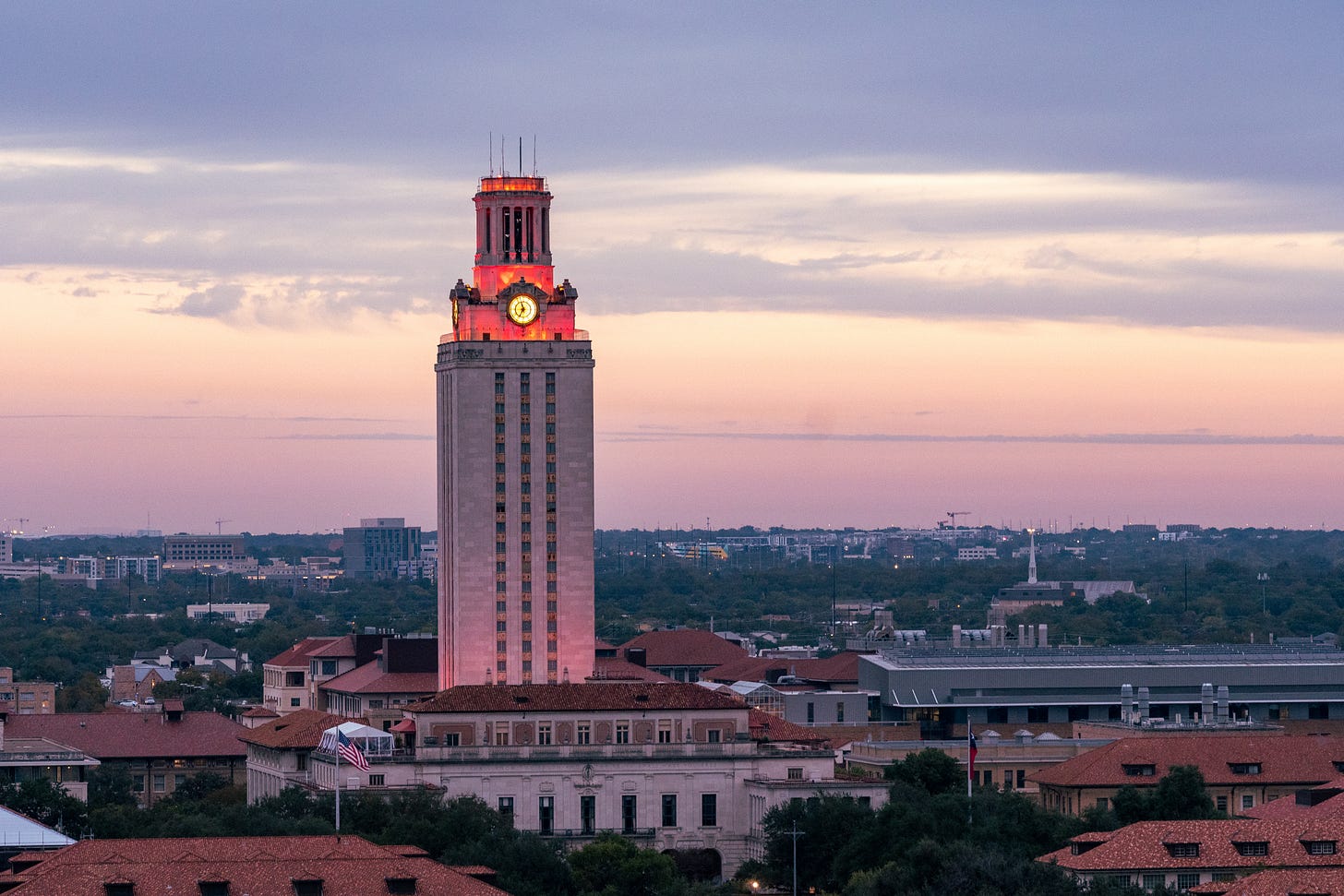With DEI under fire, student journalists offer insights from front-row seats
Here are changes they’ve seen and how they approach covering them

Offices shuttered and renamed. Student organizations defunded. Programs reviewed.
Legislation targeting diversity, equity and inclusion initiatives has prompted changes at public colleges and universities across several states.
Student journalists in these states have been observing on-campus transformations, noting that changes in these often "overlooked" areas have been a concern for students and faculty.
“A lot of the resources are still here,” said Elise Gregg, editor-in-chief of PantherNow, the student newspaper at Florida International University. “But you know we're kind of slowly seeing that encouragement from the government, and again, huge drain on time and resources.”
Seven states have enacted bills against DEI practices in higher education with about 50 similar bills introduced in 20 states so far this year, according to the Associated Press.
Florida, dubbed “where woke goes to die” by Gov. Ron DeSantis, was among the first states to enact a law prohibiting public institutions from funding DEI programs.
Gregg said while Florida International is largely complying with the law, the administration appears to be attempting to mitigate its effects to some extent.
PantherNow reported the elimination of the university's Department of Diversity, Equity and Inclusion and Office of Social Justice and Inclusion, with their duties and services reassigned to other offices, a move the student described as “logistical shuffling.”
Gregg said student-run organizations can still pursue DEI initiatives, but it now falls on the students to advocate for themselves.
“A huge responsibility to expect from students, I think,” Gregg said. “In South Florida where we do have a very diverse population … we have a very large body of international students, to not have DEI initiatives, it’s just very detrimental to the student body.”
The office closures followed the university’s hiring pause on foreign-born candidates and the termination of relationships with universities in China to comply with another state law restricting engagement with a “foreign country of concern.”
The Miami-based university recently accepted a $10 million donation for a new building for its Cuban heritage project. The school houses the Kimberly Green Latin American and Caribbean Center and the Cuban Research Institute. Former Venezuelan acting President Juan Guaidó recently took a teaching gig there.
Gregg expressed concerns about not being able to hire non-citizens for projects out of those programs.
“You're you're going to be left with a very poor picture,” she said. “You know, you have to hire people who know what they're talking about.”
Similar legislation in Texas led the University of Texas at Austin to close the Multicultural Engagement Center and rename the Gender and Sexuality Center to the Women’s Community Center.
With the MEC closed, affinity groups for ethnic and minority students and cultural graduation ceremonies for Black, Latino and Asian students are no longer funded. A program aiding the Deferred Action for Childhood Arrivals, or DACA, recipients also ended.
The Daily Texan, the university’s student-run newspaper, had to change its diversity and inclusion department to an advocacy and belonging department, according to Naina Srivastava, a senior news reporter.
“It’s really insane how much stuff (the law) affects,” Srivastava said. “They’re things that you wouldn’t even think of, things that you’d kind of overlook. So that’s been really interesting.”

In covering these changes, Srivastava emphasized speaking with those most affected. She stressed the importance of giving a platform to those invested in these initiatives, rather than those opposing them but less actively involved.
“There’s a difference between being fair and representing different opinions,” Srivastava said. “I’m very careful, I want to make the people who I’m talking to feel like I’m just telling their story of whatever happened to that agency, whatever happened to the center or program.”
Srivastava said The Daily Texan’s approach to covering the legislation has been a collaborative effort across all departments, from sourcing to angle selection and implementing feedback from the advisor.
Despite the absence of anti-DEI laws in Louisiana, journalists at The Reveille have been monitoring Louisiana State University.
They reported last month that several colleges quietly altered their online materials, removing the word “diversity” and replacing the word “inclusion” with “engagement.”
The university repeatedly maintained the changes weren’t politically motivated.
Claire Sullivan, The Reveille’s editor-in-chief, told New Orleans Public Radio that the reporters used an internet archive tool to discover these language changes happened within the same few weeks.
“We’re not quite sure yet how exactly this is going to affect different programs that are happening at the university,” Sullivan said. “But it seems mostly, at least now, to be more of a rebranding in language than wholeheartedly shutting these programs down.”
A bill that would have required a review of DEI and critical race theory-related initiatives was debated in Baton Rouge but didn’t make it out of committee.
In Oklahoma, Gov. Kevin Stitt issued an executive order to defund DEI programs in state agencies in December. The OU Daily reported that Oklahoma University is reviewing the order and that “nobody’s losing their job.”
Similar changes in language around job titles and office names are possible, according to The Daily. However, the university expected the services for students to remain the same.
Utah became the latest state to ban DEI programs last month.
The Daily Utah Chronicle reported that the University of Utah removed diversity statements and questions from the hiring process and created the “Viewpoint Representation and Expression Task Force” to ensure a welcoming campus climate for all perspectives.
Story Spotlight:
Anti-LGBTQ+ language on the rise at Latin School of Chicago (Scarlet Gitelson and Carolena Tognarelli/The Forum): This story sheds light on reports of slurs and derogatory language being used against the LGBTQ+ community and what the school is doing to combat those incidents. It promotes awareness and dialogue about LGBTQ+ rights and inclusivity while emphasizing the importance of creating a safe and supportive environment for students and teachers.
Featured Opportunities:
Multiple internships are available across the country with Lee Enterprises. Here are some from the West and here’s the full list.
NonDoc’s application for two paid editorial internships for Oklahoma students opens until Feb. 16.
Vox Media Writers Workshop 2024’s application opens until Feb. 23.
The Association of LGBTQ+ Journalists’ 2024 virtual student conference takes place Feb. 23-24.
The Salt Lake Tribune is seeking a reporting intern for the summer. Apply before March 1.
The Associated Collegiate Press Spring National College Media Conference takes place March 7-9 in La Jolla, California. Registration is open.
Student journalists residing in Arkansas, Louisiana, Mississippi, Missouri, Oklahoma, Tennessee and Texas can submit entries the Diamond Journalism Awards before March 11.






